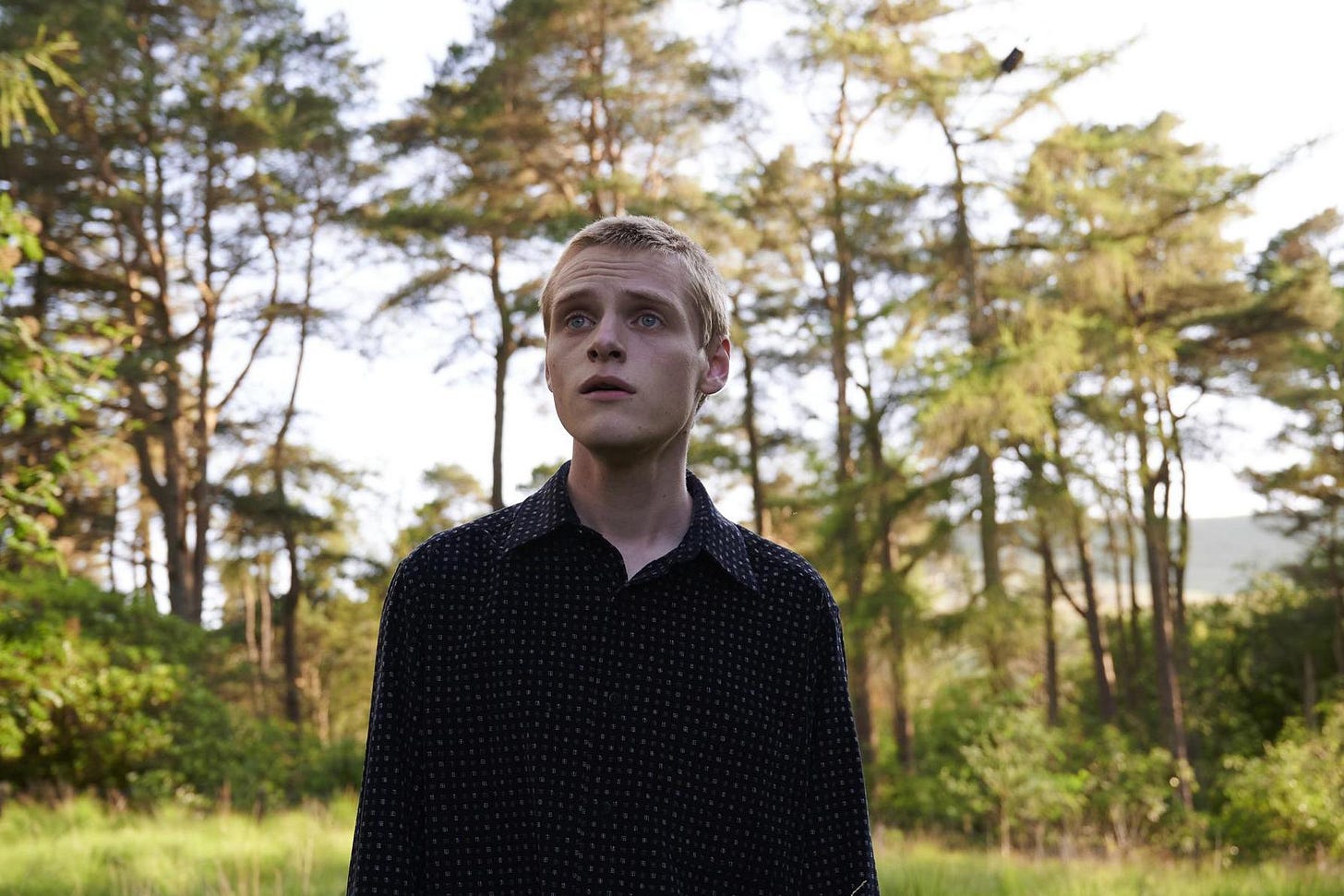Must Watch | Sentimental miseducation
Thoughts about “Somewhere Boy” (8-episode limited series, UK 2022, directed by Pete Jackson)
A crammed collage synthesized from dense storytelling devices that include psychological symbolism, societal semantics and traditional suspense motifs, “Somewhere Boy” (UK, 2022, directed by Pete Jackson) is a limited series that packs carefully a lot of emotional baggage as it embarks on a narrative journey more adventurous than merely dark.
Our protagonist is Danny, an 18yo played by Lewis Gribben, raised literally held captive under total house arrest, having lived his childhood and teenage years as a prison sentence imposed gently but coercively by a mentally ill father.
The captor, his father and ostensible protector went mad and never recovered from the shock of losing his wife in a random hit-and-run car accident
Unable to overcome his grief, the father succumbs to psychosis and brainwashes the son he is holding as a prisoner, feeding him a paranoid ontology about the dangerous outdoors and the flesh-eating monsters lurking just beyond their boarded-up country house, where an apocalypse is raging and his mother was eaten alive
Days are spent in a comfortable stupor, the captor father and hostage son watching endless repetitions of classic Hollywood movies, listening to big band dance numbers, torch songs and jazz ballads, playing dress up, sometimes shooting from the windows as target practice
Interspersed with some tense moments and familial confrontations, the boy and father establish a cozy, friendly, yet undeniably insane balance between isolationism, curated subjectivity, abuse, gaslighting and real madness.
Their days play out as a perfect example of Stockholm Syndrome, the son only tentatively confronting the father but ultimately accepting his captivity as the only safe choice
Obviously a parable about growing up, the story happens in a uchronic present that includes atemporal anachronisms like contemporary cell phones co-existing with '90s cars, memories made all the more fuzzy by the old soundtracks and snippets of film dialogue that seem inextricably interspersed with fragments of pedestrian reality that keep intruding the bubble between father and son
However, the most shocking element of this dark scenario is how normalized it seems for its inhabitants – there is nothing about the relationship between father and son that might be considered cruel, sadistic or malicious: even some altercations and fights are portrayed as interactions that might be slightly unpleasant, but hardly extraordinary. A few angry words, some tense conversations but mostly it is lighthearted banter and playful camaraderie that characterize the atmosphere
The dilapidated house and remote location are the only obvious sign of oddity, alluding to the haunted forest, which after all is a setting where many fairy tales place their often terrifying happenings
The film cannot escape the parallels with movies like “Dogtooth” (Greece 2009, directed by Yiorgos Lanthimos), Michael (2011, Austria, directed by Markus Schleinzer) or the acutely dysfunctional families starring in any of the psychological horrors envisioned by Michael Haneke. Even the universal experience of pandemic quarantine informs the peculiar atmosphere of unquestioned isolation.
The world finally and unavoidably wins, like it always does, vanquishing dreams both deranged and noble
Reality intrudes when the father is found dead in his secret garden, while the son is suddenly free to explore the question of monsters, real or imagined, and how to deal with them.
Existential surprises, character twists and stations of the cross are duly met like miracles by appointment, as our teenager hero reaches maturity in a circumspect, unexpectedly peaceful way – it is as if, against all odds and after all, his trauma did prepare him for the horrors of the real world.
In the morning of regardless
Original text written by Panagiotis Chatzistefanou, Berlin 2022




